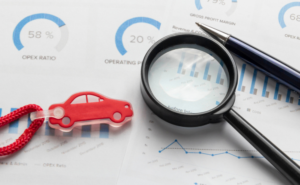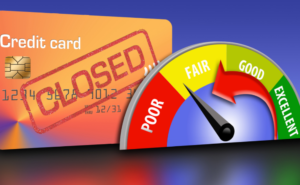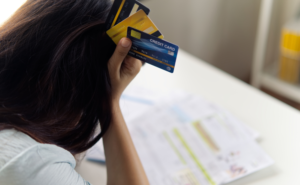How Do Student Loans Affect Credit Reports
The student loan debt of Americans is greater than the amount they owe on credit cards. These debts influence their entire financial standing and lives. Can student loans make purchasing an auto or mortgage loan more difficult? How do student loans affect credit score? Read further to learn more about how educational loans impact credit reports.
Similar to other debts, student loans show up on your credit report and are considered an integral factor for credit rating. Your credit will be impacted depending on how you manage these loans.
Do Student Loans Affect Your Credit Score and Appear on Your Credit Report?
Student loans are installment loans that are paid off in the same orderly manner as other debts are paid each month: mortgage payments and auto loans.
Credit bureaus treat these debts as installment loans on your credit report.
Credit reporting agencies will treat them as installment loans on your credit report. If you have a student loan and make timely payments, your credit report will indicate that you are a diligent debtor who has good financial management skills. This responsible attitude and good credit history will reflect well for when you need a loan and deal with lenders in the future.
On the contrary, your credit score can be affected if you fail to make on-time payments, let your installation loan go to a collections agency or default on the loan. Subsequently, your financial status and potential to receive a good deal on loan will also be compromised.
When Do Student Loans Show Up on Your Credit Report?
Registering for student loans provided by the state will not appear on your credit report until the loan is drawn out. Consider shopping and looking around for good deals for private student loans if additional funds are required to pay for college.
Hard inquiries on your credit report bring down the credit score; hence it is necessary to ensure that private moneylenders only carry out soft inquiries when quoting an estimated loan cost. Your score, however, is not crucially impacted as most inquiries do not shift your score by more than five points.
Lenders usually show more interest in your monthly payments’ timeliness than your current debt balances. Therefore, the appearance of student loans on your credit report while you’re still in college will not affect your capability of acquiring other types of loans. It should be noted that there should be no payment obligation every month while you’re still in an educational institute.
When Will a Student Loan Have a Negative Impact on My Score?
As with all types of loans, delayed or failed payments will significantly affect your credit score. Your negligence towards loan repayment will not be detailed to the credit bureaus unless you’re 90 days late for a federal loan payment.
Your loan is viewed as a defaulted student loan if your payment hasn’t been made 270 days after the given date. A default payment stays on your credit report for up to seven years, and rebuilding good credit may take several years. You may suffer consequences such as wage garnishment and retaining of federal income tax refunds due to a student loan default.
Additionally, you may not be fit for federal benefits if you’re in default. Speak to your service provider regarding a recovery and resettlement course of action so that you may benefit from loan schemes and protection laws for debtors.
The guidelines for private loan servicers aren’t the same as the ones for federal loan providers, as they do not wait for 90 days to report a missed or delayed payment to the credit bureaus. Your credit score will decrease due to these derogatory marks on your report.
What If You Are Unable To Repay Your Student Debt?
There are several choices to repay debts on time once you’re through with your education and have joined the workforce.
Income-Driven Reparation
The income-based repayment option allows you to adjust and deliver student loan repayment on the grounds of your income while decreasing and maintaining required payments to zero each month.
Every payment made is reviewed as “paid as agreed” when you opt for the income-driven repayment plan. The payments made while being enrolled in one of these plans add up to the 120 “qualifying payments” required to procure Public Service Loan Forgiveness.
Postponing Or Delaying A Foreclosure
You may be granted a period of deferment or forbearance to ease the student debt payment process. The leniency will be shown to individuals based on their current financial standing.
Being granted loan forbearance or a deferment period permits you to cease making debt payments till a specific period of time to decrease the cash outflow of your account temporarily.
During deferment, a borrower will not be charged interest or principal on the loan. Conversely, with forbearance, the interest continues to accumulate on your loan balances. Opting for this policy will not affect your credit score as these payments are termed as “paid as agreed.”
Forbearance plans are offered by some private creditors, but they differ with each lender as no consistent standards are followed.
It is important to note when the deferment period or forbearance ends so as to be aware of when you’re supposed to resume settling payments.
Get in touch with your lending institution if you’re facing any hardships paying your student debt to see what harmonization processes can be devised and adapted.
Debt Consolidation
Debt consolidation refers to borrowing a new loan to pay off consumer debts and other liabilities. It is advisable to use loan consolidation for student loans provided by the government, so you only have to make a single payment each month.
Loan consolidation will give you an added advantage of extending your payment period, making your monthly responsibility of paying a debt easier to manage and more budget-friendly.
Recapitalizing Debts
Educational loans can be refinanced. Recapitalizing our refinancing debts refers to acquiring huge private loans to pay off the smaller ones.
Student loans provided by the government can be paid off by acquiring private student loans. Still, you will have to forgo the advantage of subscription to schemes such as income-driven payment and Public Service Loan Forgiveness.
It is not ideal for moving forward with the payment of a debt by obtaining private student loans as certain consumer protection factors will automatically be eliminated from the picture, and benefitting from them will no longer be possible.
Look into using direct debt consolidation to refinance federal loans and any private loans you have. Taking on a loan to refinance before skipping payments will assist you with lowering your interest rate if you have a good credit score. It may also increase the length of your loan term while reducing the amount to be paid each month.
Wrap Up
It is recommended to handle your student debts similarly to how you would manage any other installment loan to portray your credit score in a favorable light. Overdue and outstanding payments can be avoided if full and timely payment of bills is practiced. This can be done by setting up automated payments for your credit account to avoid negatively impacting your credit score.
To sum it up, how do student loans affect credit score? Having multiple private or federal student loans does not worsen your credit score if managed responsibly. Get information on loan relief options from your service provider and opt for those available to you. You can benefit from low-interest rates and refinance private loans that are proving to be heavy on your pocket with time.






